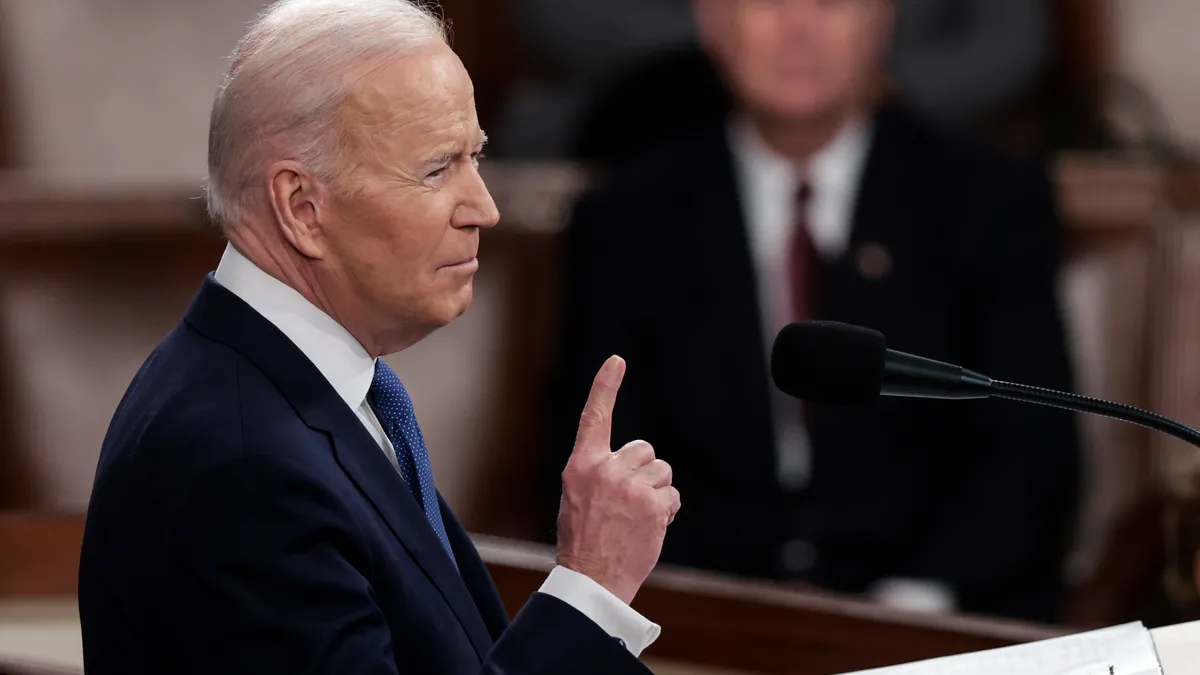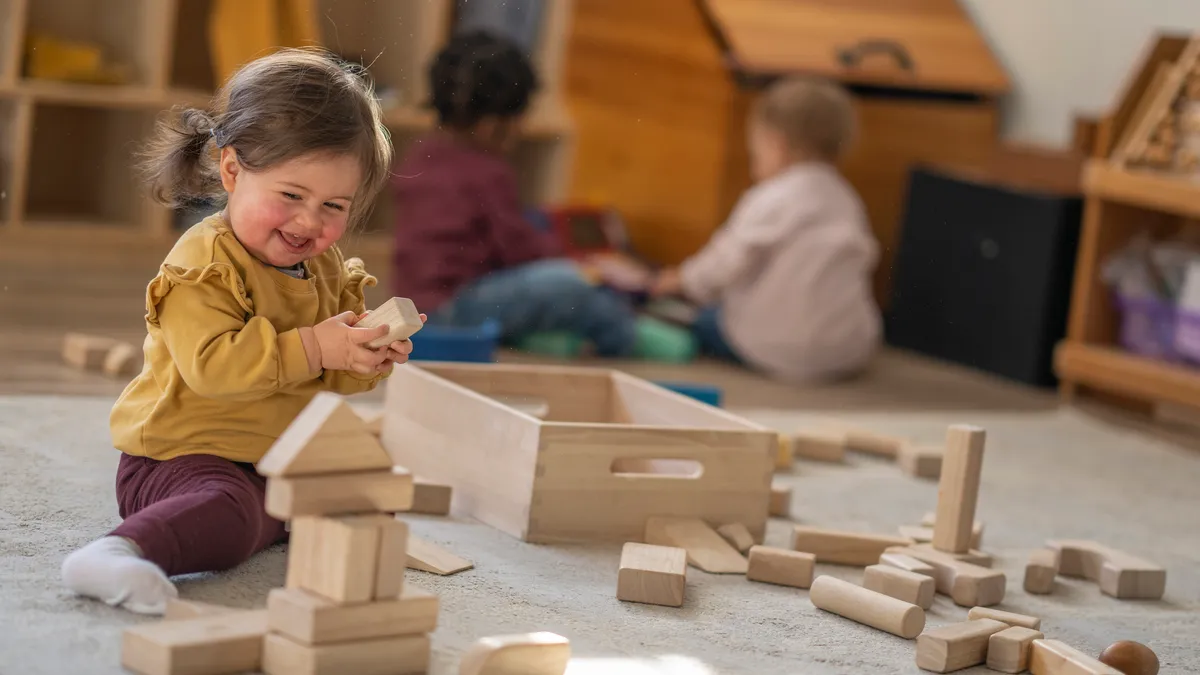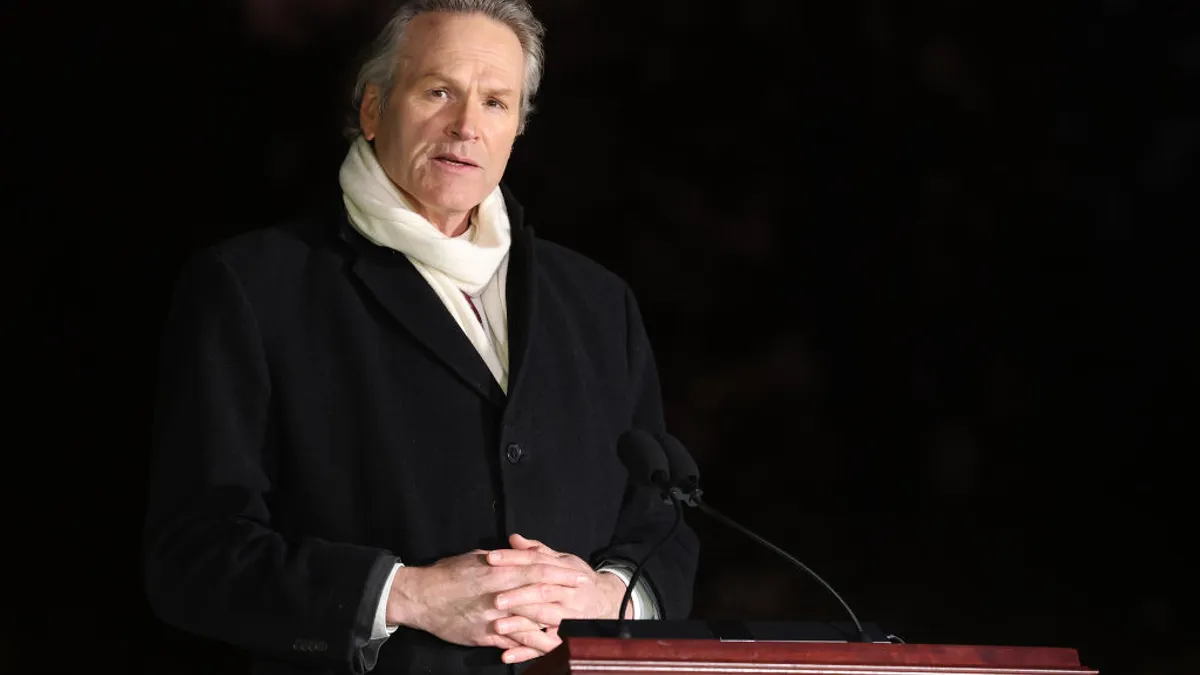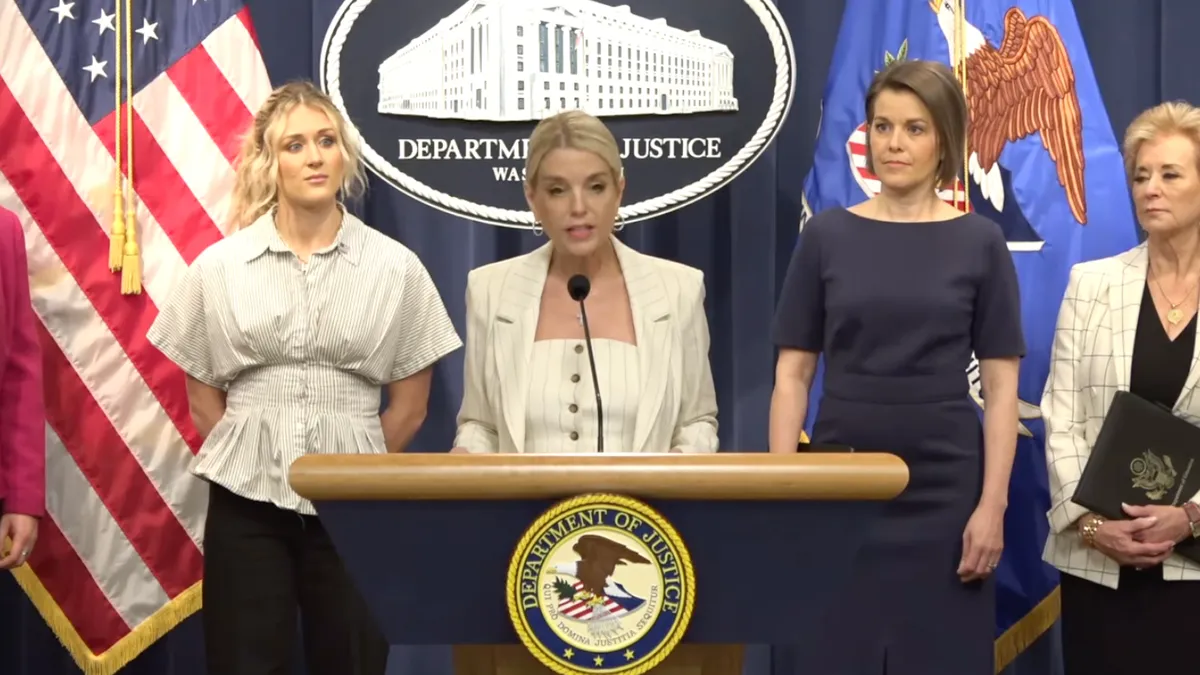As President Joe Biden addressed the nation Tuesday night in his first State of the Union speech, he briefly touched on several K-12 initiatives, including improving children’s mental health, expanding early childhood education and addressing pandemic-related learning loss.
It is significant that social-emotional health and mental well-being were identified as national priorities under the Biden administration during this important, high-profile speech, said Matthew Kraft, an associate professor of education and economics at Brown University.
“Education doesn’t always rise to the top of the many issues that a president wants to flag in their limited time, so I think that’s very meaningful,” Kraft said.
The past two years hit students and teachers hard after COVID-19 temporarily shut down in-person learning, causing students to rely on remote learning and be socially distanced. In October, the American Academy of Pediatrics and other organizations declared a national emergency in children’s mental health caused by prior challenges worsened by the pandemic.
At the beginning of Biden’s speech, U.S. Education Secretary Miguel Cardona tweeted what is needed to help students grow and heal from the pandemic’s challenges:
To truly heal, learn, and grow together – we must address students social, emotional, and mental health needs. The pandemic caused significant problems, but we have the resources & strength to build back better & help our children grow. #SOTU
— Secretary Miguel Cardona (@SecCardona) March 2, 2022
With districts continuing to juggle staffing shortages and a youth mental health crisis on top of learning loss, Biden highlighted four K-12 priorities for the nation moving forward.
Student mental health
The White House released a fact sheet Tuesday saying Biden’s fiscal year 2023 budget will propose $1 billion to help schools hire more counselors, psychologists and other health professionals.
“Let’s take on mental health, especially among our children whose lives and education have been turned upside down,” Biden said in his speech.
Some progress has been made to add school social workers and counselors through the American Rescue Plan. In fact, federal pandemic relief funds have helped schools see a 65% increase in school social workers and a 17% increase in counselors, according to the White House.
There’s hope a 1:250 counselor-to-student ratio can be reached by districts nationwide — as recommended by the American School Counselor Association, said Jill Cook, ASCA executive director. While that hope remains, Cook noted the difficulties in finding candidates to fill school counseling positions.
Biden’s concerns about youth mental health echo those of education leaders. A recent RAND Corp. survey revealed district leaders are more concerned about the mental health of students, staff and principals than any other school issue.
For Derrick Lawson, principal of Indio High School in Indio, California, the past three weeks alone have dealt a huge blow to his school community’s mental health as they try to collectively process one student’s death by suicide, a teacher’s death due to COVID-19, and the death of another teacher’s spouse to COVID-19.
While his school has had the funding to hire mental health supports, such as counselors, the pipeline for these professionals is weak, and he can’t find the assistance his school needs, Lawson said.
Still, Lawson said he’s glad Biden emphasized a need for prolonged investment into mental health resources.
“I’m happy to hear that he realized this is not a one-time deal,” he said. “We don’t yet know what are going to be the long-term effects or longer-term impacts of the pandemic on our children and on our teachers.”
Social media
Biden said he wanted to take on social media companies to help alleviate the youth mental health crisis.
“Children were also struggling before the pandemic. Bullying, violence, trauma and the harms of social media,” Biden said. “We must hold social media platforms accountable for the national experiment they’re conducting on our children for profit.”
The president said he wants to strengthen children’s data privacy and ban targeted advertising for children online.
Educators are generally concerned about districts’ abilities to protect students’ personal data due to outdated laws, a growing number of state rules and a surge in ed tech tools.
While social media has played a factor in children’s declining mental health, it’s certainly not the only contributor, Cook said. The pandemic may have caused students to go on social media more often than normal, which could have hurt their mental health further, she said.
The anonymity of posting and the way physical appearances can easily be distorted online are some ways social media can negatively impact students, especially teenagers, Cook said.
“Teenage years are hard years, and if you have enough self-doubt and self-conscious issues, so when you’re looking at images that appear to be perfection it can oftentimes just feed into insecurity and doubts you have about your own self,” Cook said.
Early childhood education investments
Biden highlighted the importance of universal preschool for 3- and 4-year-olds and called for dramatically reducing child care costs. Child care should not cost more than 7% of a family’s income, the president said.
However, Biden primarily focused on universal preschool and affordable child care policy solutions as an economic benefit, said Chrisanne Gayl, chief strategy and policy officer at Trust for Learning, a philanthropic partnership focused on expanding early learning environments for underserved children.
But it’s key to consider the positive value these policies have on young children’s development, too, she said. Gayl is also a former senior policy advisor for early learning at the U.S. Department of Education.
Early childhood education is “not only an economic support for parents,” Gayl said, adding these programs can give children a strong foundation for the future.
“The research in terms of early childhood education, real quality early childhood education, is very strong in terms of the outcomes it has on children later in life,” Gayl said.
Learning loss
Now that 99% of schools are back to regular in-person learning, Biden further emphasized the importance of keeping this going.
“Our schools are open, let’s keep it that way. Our kids need to be in school,” Biden said.
He also highlighted how ARP funding has helped districts pay for teachers to address learning loss from the pandemic.
“I urge every parent to make sure your school, your school does just that. They have the money,” Biden said. “We can all play a part. Sign up to be a tutor or a mentor.”
Biden's call for tutoring and mentoring supports by parents and schools speaks to a growing recognition of evidence that those tools can be successful when done well in a sustainable way, Kraft said. He also appreciated that Biden tied together tutoring and mentoring.
“Too often, we think about tutoring narrowly as academic recovery, prep for standardized tests,” Kraft said. “The real potential is in bringing in young adults and peers and community members who can serve as both academic support tutors, but also as mentors and caring adults to be a sounding board and advocate for students.”
However, Kraft hopes volunteer tutoring and mentoring will not turn into a long-term solution for learning loss, as he said that is not sustainable.
“What I hope is that we find a way to develop systems where we can attract a sustainable pool of tutors likely by compensating them,” Kraft said.





















